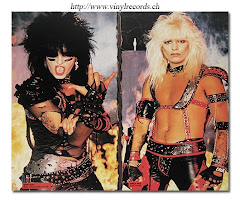Sunday, September 27, 2009
Boys in the Hood
In the film Boys in the Hood, there are different kinds of masculinity portrayed by the male characters, Tre, Furious Styles, Ricky, and Doughboy. Tre's father teaches Trey how to be a man and makes sure that Trey is responsible and aspiring. In his childhood, Trey encounters disciplinary problems without the guidance of his father, but once he starts living with a father, he is an intelligent high school student. One important positive characteristic of the male characters is having a specific goal in life. The movie epitomizes the importance that the male characters have an ambition: Trey is an aspiring senior ready for college while Ricky is an extremely talented football player. This also ties into their responsibility as men. Ricky and his girlfriend have a teen pregnancy, and he stays together with her and takes care of her and the baby, which shows his responsibility to his own mistakes. Comparably, Doughboy is the exact opposite of Tre and Ricky. He shows the dangerous sides of masculinity, such as temper and violence. Because he never had the parental guidance, he grows up as a drug dealer and is often trapped in violent situations. When Ricky is killed, his hot temper and violent nature only lead to taking a revenge.
Race plays a significant role in the film because it sets the background of African American life in South Central L.A., which is characterized with dangerous activities--fighting, drugs, sex. Also, throughout the movie, racism towards black men is highlighted. Because of the stereotypes against black men, being uneducated and violent, they suffer through much judgment from others.
Female characters in the film are very passive; however, there is an exception. The film portrays the female characters' weakness and dependence on men. Tre's mother could not control Tre so she decides that he needs guidance from his dad, while Ricky's mother lets her sons do whatever they want because they are uncontrollable with her power. However, Tre's girlfriend is an exception to the norm and is the "outsider-within" because she somewhat "holds the power" in their relationship as she firmly stands up for her Catholic beliefs by refusing sex with Tre. Also, racism ties in with the discrimination on women in the film. Like the article "Theorizing Difference from Multiracial Feminism" states, "race stresses the social construction of differently situated social groups and their varying degrees of advantage and power." In the film, the African American women live a low-class life, having no control over the society or even their own family.
Race plays a significant role in the film because it sets the background of African American life in South Central L.A., which is characterized with dangerous activities--fighting, drugs, sex. Also, throughout the movie, racism towards black men is highlighted. Because of the stereotypes against black men, being uneducated and violent, they suffer through much judgment from others.
Female characters in the film are very passive; however, there is an exception. The film portrays the female characters' weakness and dependence on men. Tre's mother could not control Tre so she decides that he needs guidance from his dad, while Ricky's mother lets her sons do whatever they want because they are uncontrollable with her power. However, Tre's girlfriend is an exception to the norm and is the "outsider-within" because she somewhat "holds the power" in their relationship as she firmly stands up for her Catholic beliefs by refusing sex with Tre. Also, racism ties in with the discrimination on women in the film. Like the article "Theorizing Difference from Multiracial Feminism" states, "race stresses the social construction of differently situated social groups and their varying degrees of advantage and power." In the film, the African American women live a low-class life, having no control over the society or even their own family.
Subscribe to:
Post Comments (Atom)


No comments:
Post a Comment
Note: Only a member of this blog may post a comment.